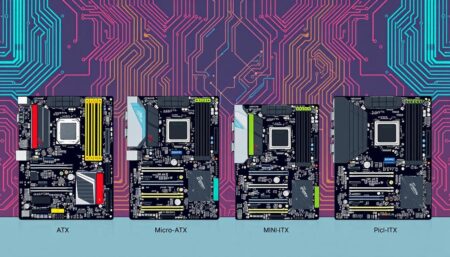Overclocking is the practice of running a computer component at a higher clock rate than it was originally designed for. This technique is commonly used by gamers and PC enthusiasts to achieve better performance from their CPUs and GPUs. But with so many conflicting opinions online, it’s easy to wonder if overclocking is safe. In this article, we’ll explore the potential risks and benefits of overclocking, and answer the question: Why don’t CPUs and GPUs run at overclocking speeds out of the box?
What is Overclocking? In this section, we’ll define overclocking and explain how it works. We’ll also discuss why people overclock their CPUs and GPUs.
Is Overclocking Safe? In this section, we’ll dive into the potential risks associated with overclocking. We’ll discuss the impact of increased heat, voltage, and power draw on the stability and longevity of your components. We’ll also cover the importance of adequate cooling and the potential for voiding your warranty.
Benefits of Overclocking In this section, we’ll explore the potential performance gains of overclocking. We’ll explain how overclocking can improve gaming and other demanding applications. We’ll also discuss the impact of overclocking on benchmarks and real-world performance.
Why Don’t CPUs and GPUs Run at Overclocking Speeds Out of the Box? In this section, we’ll answer the question that brought you to this article. We’ll explain why CPUs and GPUs don’t run at their maximum clock speeds out of the box, and why manufacturers choose to set conservative clock speeds. We’ll discuss the importance of stability and reliability, and the impact of mass production on the quality of individual components.
Tips for Overclocking Safely In this section, we’ll provide some practical tips for overclocking your CPU and GPU safely. We’ll cover the importance of starting slow and testing your system for stability. We’ll also discuss the impact of cooling, voltage, and power draw on overclocking.
FAQs:
- What are the potential risks of overclocking?
- Can overclocking void my warranty?
- How much performance gain can I expect from overclocking?
- What are some common mistakes to avoid when overclocking?
- Is it worth it to overclock my CPU or GPU?
Conclusion: In conclusion, overclocking can be a safe and effective way to improve the performance of your CPU or GPU. However, it’s important to understand the potential risks and take steps to mitigate them. By following best practices for overclocking and using adequate cooling, you can achieve better performance without compromising the stability or longevity of your components.
